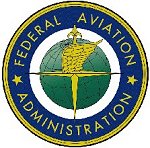Not States; Not Municipalities (and Presumably No Tinpot Mayor,
Either)
 In a letter to AOPA, the Transportation Security
Administration (TSA) says in no uncertain terms that individual
states have no authority to require pilot background security
checks; that power lies solely with the federal government.
In a letter to AOPA, the Transportation Security
Administration (TSA) says in no uncertain terms that individual
states have no authority to require pilot background security
checks; that power lies solely with the federal government.
"This letter is powerful ammunition in our fight to strike down
Michigan's pilot background check law," said AOPA President Phil
Boyer. "And it ought to make other state and local lawmakers stop
and think twice about their own inappropriate efforts to regulate
aviation security and pilot licensing."
The April 10 letter was a response to an AOPA request for TSA's
opinion on state-imposed aviation security regulations. Assistant
Administrator for Transportation Security Policy Thomas Blank
wrote, "State imposed measures to require criminal background
checks on flight school applicants would create a patchwork of
requirements in this area ... It is TSA's view that while such
efforts by states are motivated by legitimate concerns for the
security of the nation, they are nevertheless not permissible."
 Blank states that both existing federal law that
pre-dates the September 11, 2001 terrorist attacks and the Aviation
and Transportation Security Act (ATSA), which created TSA,
preempts any attempts by states to regulate
aviation. "[F]ederal legislation evinces a clear intent to occupy
the field of pilot regulation in the furtherance of national
security, to the exclusion of state law," says the letter. "It is
the position of TSA that federal law impliedly [sic] preempts
state-imposed aviation security requirements such as [the Michigan
pilot background check law] and that similar legislation being
contemplated by other state legislatures would likewise be
preempted."
Blank states that both existing federal law that
pre-dates the September 11, 2001 terrorist attacks and the Aviation
and Transportation Security Act (ATSA), which created TSA,
preempts any attempts by states to regulate
aviation. "[F]ederal legislation evinces a clear intent to occupy
the field of pilot regulation in the furtherance of national
security, to the exclusion of state law," says the letter. "It is
the position of TSA that federal law impliedly [sic] preempts
state-imposed aviation security requirements such as [the Michigan
pilot background check law] and that similar legislation being
contemplated by other state legislatures would likewise be
preempted."
FAA Clinging to Authority
 The FAA has
also backed AOPA's position. In two separate letters supporting
AOPA's federal lawsuit challenging the Michigan law, FAA Deputy
Chief Counsel James Whitlow said federal law preempts state
efforts. "[C]ourts throughout the country have recognized a
Congressional intent to preclude
The FAA has
also backed AOPA's position. In two separate letters supporting
AOPA's federal lawsuit challenging the Michigan law, FAA Deputy
Chief Counsel James Whitlow said federal law preempts state
efforts. "[C]ourts throughout the country have recognized a
Congressional intent to preclude
supplementation by the States," wrote Whitlow. "Especially
pertinent is the fact that the U.S. Court of Appeals for the First
Circuit has found state lawmaking in the area of pilot
qualification to be preempted."
We're all just pawns, now...
In the TSA letter, Blank said that when Congress created the
TSA, it created a fundamental shift in how aviation security is
handled. That responsibility now falls squarely on shoulders of the
federal government, with airports, air carriers, and state
and local governments limited to carrying out federal
directives.
"The combination of preexisting law, ATSA, and the legislative
history accompanying its enactment reveals a Congressional intent
to establish complete and thorough federal responsibility
over aviation security not subject to supplementation by
the states," wrote Blank.
 "State imposed measures to require criminal
background checks on flight school applicants would create a
patchwork of requirements in this area and would appear to be
inconsistent with the intent of Congress. Accordingly, it is the
TSA's view that while such efforts by states are motivated by
legitimate concerns for the security of the nation, they are
nevertheless not permissible."
"State imposed measures to require criminal
background checks on flight school applicants would create a
patchwork of requirements in this area and would appear to be
inconsistent with the intent of Congress. Accordingly, it is the
TSA's view that while such efforts by states are motivated by
legitimate concerns for the security of the nation, they are
nevertheless not permissible."
 ANN's Daily Aero-Term (05.02.24): Touchdown Zone Lighting
ANN's Daily Aero-Term (05.02.24): Touchdown Zone Lighting Aero-News: Quote of the Day (05.02.24)
Aero-News: Quote of the Day (05.02.24) Aero-News: Quote of the Day (05.03.24)
Aero-News: Quote of the Day (05.03.24) ANN's Daily Aero-Term (05.03.24): UAS Traffic Management (UTM)
ANN's Daily Aero-Term (05.03.24): UAS Traffic Management (UTM) ANN's Daily Aero-Linx (05.03.24)
ANN's Daily Aero-Linx (05.03.24)






